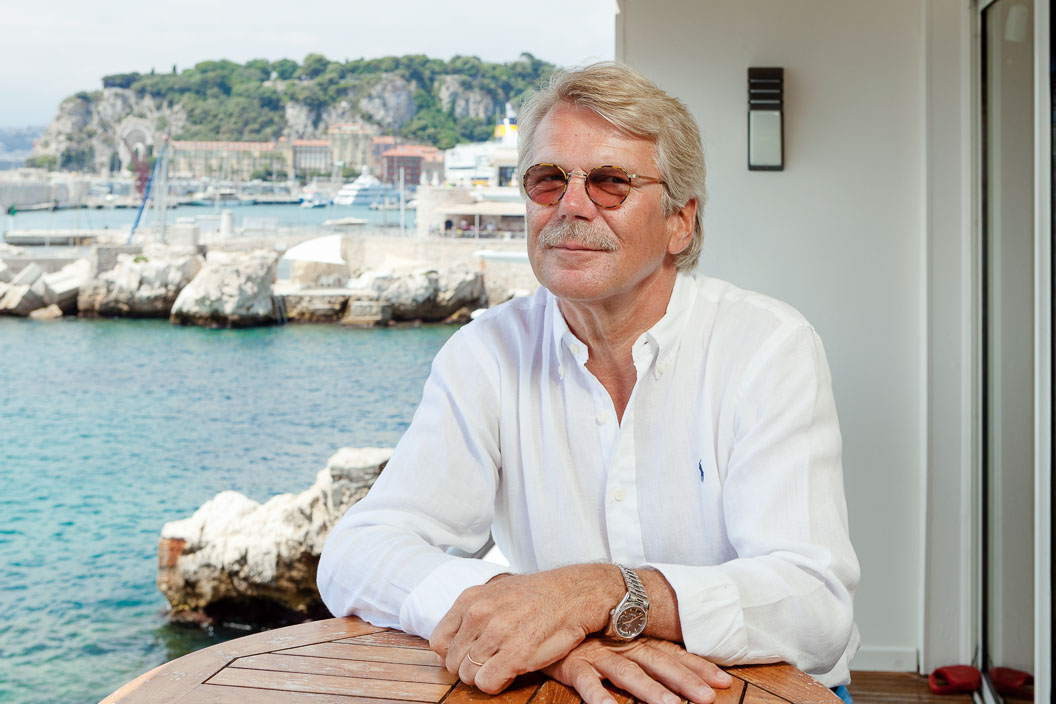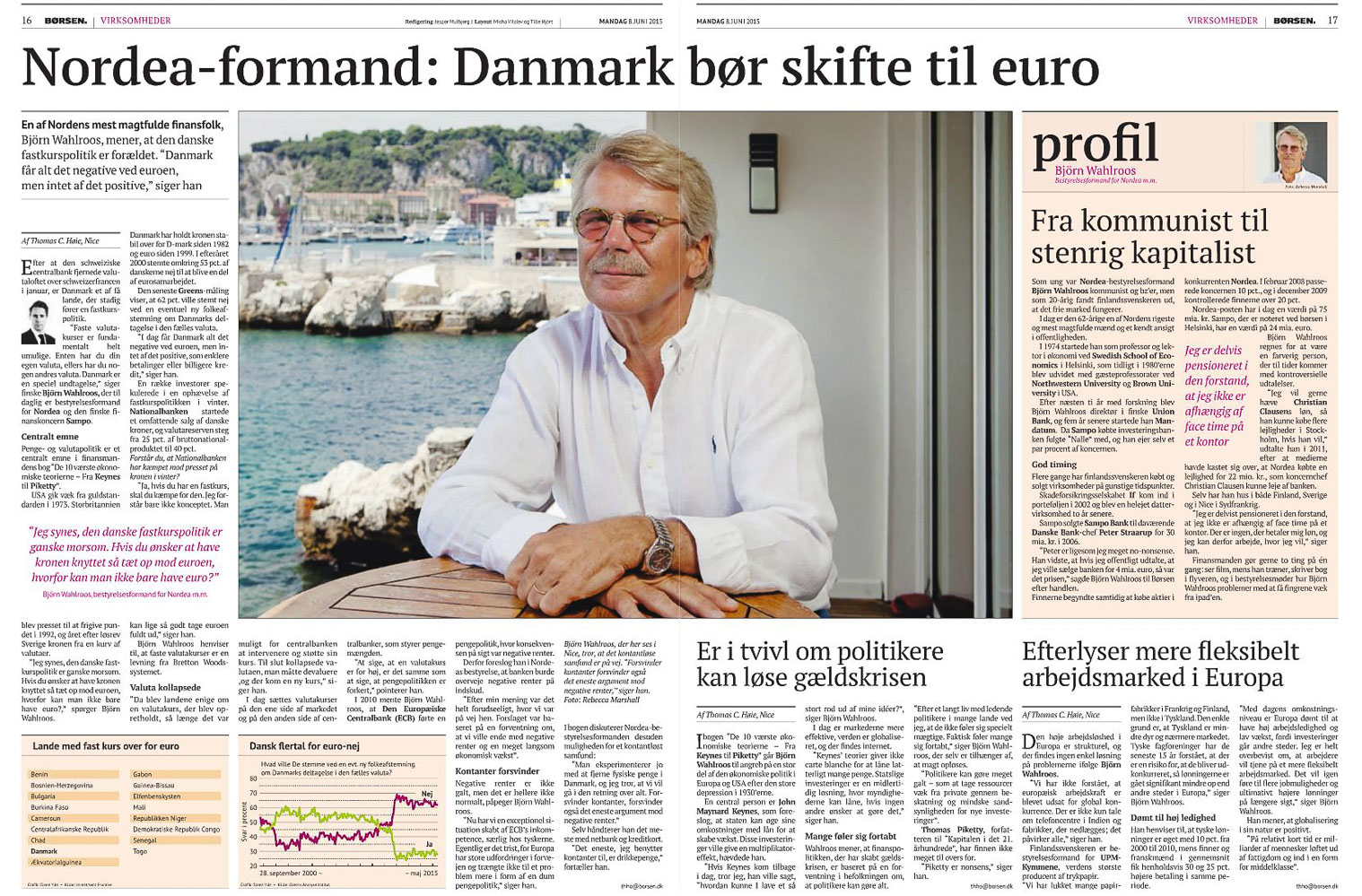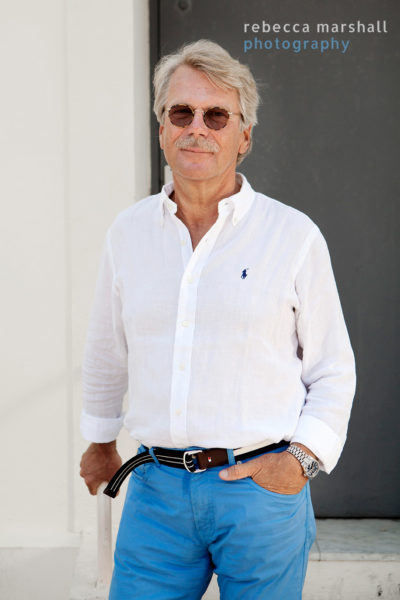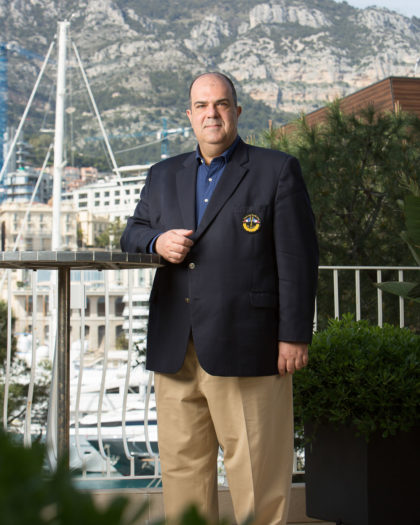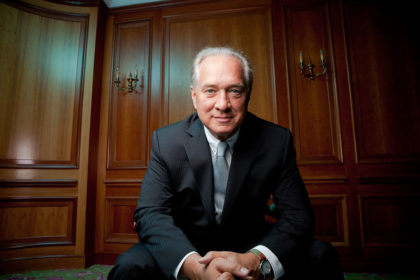Björn Wahlroos is arguably Finland’s most important businessman. As outspoken as he is successful, arch-capitalist economist Björn is chairman of three of the biggest companies in the Nordic region (the bank Nordea, financial services group Sampo and a paper producer). In addition to overseeing these businesses, he regularly participates in debates on the financial future of Europe in Brussels and has recently written and published a book about free market economic theories. When Danish business newspaper Børsen decided to run a feature about him, their journalist headed down to join Wahlroos in the South of France and I was the photographer commissioned to take his portrait.
Generous timeline
The interview and photoshoot had been booked over a week in advance, so it was a surprise to receive a short email less than two hours beforehand, announcing “Mr. Wahlroos has changed his mind, and does not want any pictures taken today“. Writer Thomas promised to try to persuade his PR agent otherwise. But the call back a few minutes later didn’t fill me with joy: “excellent news: they said the photographer can have 2 minutes“. Having pointed out to both the writer and picture desk that Børsen’s brief requiring the photographer to take 3 formal portrait set-ups in vertical and horizontal formats plus some casual reportage of Björn walking along the seafront of Nice “talking and doing some activities” might now be a little hard to fulfil, I quickly packed my kit into the car and headed down to the Riviera.
Iron handshake
The rendez-vous for journalist and photographer had been arranged at La Réserve de Nice, one of Nice’s finest oo-la-la gourmet restaurants (an establishment of a rather different genre from another family-run, local Nice restaurant that I recently photographed and blogged about). Björn himself arrived in a suitably relaxed, sunny South of France luncheon mood. Shortly after we met and I returned his iron handshake, he announced that I reminded him of Eliza Doolittle. My recollections of My Fair Lady are poor to say the least, but this statement appeared to be a sign that he was kindly disposed towards me, which could only be good. His approbation indeed proved to be positive, on two counts.
Firstly, my 2 minutes for portraits were genially extended by a couple more, although Björn is a man with a voice that decisively stifles dissension before one even considers it and his “OK Photographer Stop Now” came round pretty fast, as I had known it would. His physique matches his voice. Writer Thomas looked flimsy by comparison as he nervously struggled to hold his arm above his head with my umbrella, and when the flash unit got stuck in the hotshoe, it was Björn who had a stronger grip than either of us to loosen it.
The second positive outcome of Björn’s blessing was that I was invited to lunch.
Picketty, poetry and poulpe de roche
Thomas conducted the interview in English, which was nice, although the jury is out on whether I understood more than if they had been speaking Danish or Finnish. Discussions about theories of Keynes and Piketty and the relevance of obscure aspects of their economic arguments to current European Central Bank interest rates floated around me as I savoured my poulpe de roche (rock octopus), with a vague sense of déjà vu that perhaps stemmed from economic lectures that I had dozed through at university twenty years before.
However, I didn’t let my lack of fundamental knowledge stop me interjecting with occasional questions. To keep the professional peace, I bit my tongue a few times, such as when Björn, happily denigrating ‘lefties’ – “some people just want to write poetry and are happy with that” – gave me the kind of look that was an invitation for me to fight my corner (obviously a photographer comes into this category), and also at his assumption that the answer to Europe’s current economic flunk is to pay workers less and make them easier to fire, “which would be better for the workers too“. But when he said “I have a lot of experience with high level politicians and they really feel powerless in a big market economy. They simply don’t have the power“, I was genuinely interested to know who does. I can’t say I was entirely convinced by his reply: “No-one. The market is totally free“. He looked, as a banking godfather, just a little too comfortable with the assertion that the whole economic system is way beyond anyone’s control.
Raw beef and plane-spotting
Economics talk aside, Björn’s swearing, worthy of a marine, as he chatted and chomped on a steak tartare (France’s wonderful dish of raw beef and egg) and the cheeky sparkle in his eye as he made edgy jokes, such as the assertion that 80% of people who have previously interviewed him are stupid, made for an entertaining lunch. This, plus his borderline OCD behaviour about aircraft (from the terrace, he kept pointing out passing planes heading to Nice airport, informing us of each’s model, their airline, and whether they were running on time or not), certainly gave his character irresistible colour that I’m not sure could be alluded to in an article in Denmark’s leading financial publication.
Despite his towering success at the age of 62, retirement is not really applicable to Björn – and it didn’t seem apparent that it ever will be. Wherever he is on the globe, in a city office or his South of France summer villa, he spends most of his days managing his own money. “I have a lot of money invested, it’s a full time job managing my portfolios“.
“Why don’t you pay someone else to do it then, and chill out?” the photographer butted in again.
He answered, with more than a hint of pride, that “there are very few people in the world who are capable of that. Those in whom I’d trust are otherwise engaged“.
Instead of being dazzled, I felt rather sorry. The first and only sign of hesitation I saw in Björn Wahlroos appeared when I asked him what he’d do with his time if he was truly free. “Err…. I’m not sure“. I guess it wouldn’t be writing poetry, in any case.
